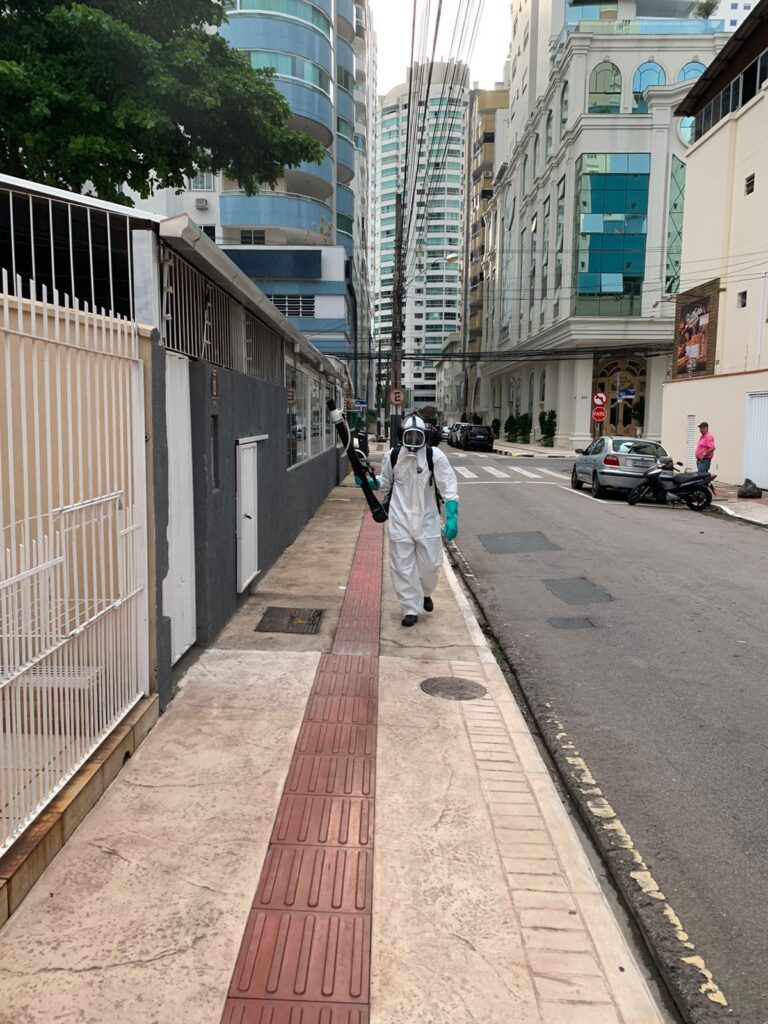Environmental monitoring teams, from the Balneário Cambori Health Department, are stepping up their visits to shops and homes in areas reporting positive dengue cases. In these places, specialists from the dengue control program also use an insecticide known as “smoke”. The goal is to guide the population regarding the spread of dengue mosquitoes and to eliminate potential breeding sites.
The heat associated with summer rains contributes to the increased spread of breeding sites. Therefore, it is essential to rely on the population’s help to eradicate potential outbreaks of the Aedes Aegypti mosquito, which transmits dengue, Zika, and Chikungunya, explains Ilian Geddes, Director of Environmental Watch. The professional also recommends the use of insecticides that can be easily found in supermarkets, and the use of repellents to protect against disease.
So far, the city has recorded seven cases of dengue, three of which are indigenous (contracted within the city), two are imported, one is unspecified and one is under investigation, in addition to a case of non-resident chikungunya. In all, there are 529 outbreaks of mosquitoes scattered in the city’s neighborhoods. The center contains 122 and is the neighborhood with the most mosquito outbreaks, followed by Nova Esperanca neighborhoods with 80; states with 42; Bara B 36.
Endemic agents are vaccinated against Covid-19, are dressed in uniform and are identified with badges bearing the emblems of the City Council and Dengue Control Program. In case of doubt, residents can contact the sector by phone (47) 3261-6264 to confirm the visit. The team responds to complaints made to the Municipal Ombudsman, by phones (47) 3267-7024, 0800644 3388, or WhatsApp (47) 99982-1979.
The main symptoms of dengue fever are:
– high fever, from 39 ° C to 40 ° C, sudden onset;
– Headache;
weakness;
body pain;
– Joint pain;
Pain in the back of the eye.
When you notice symptoms, you should immediately seek a health service.
Methods of prevention:
Avoid using dishes in potted plants. If used, add sand to the rim;
– Keep litter boxes covered;
– Always leave water tanks closed, without any openings, especially water tanks;
Plants such as bromeliads should be avoided, as they collect water;
– chlorination of pool water and cleaning it once a week;
– keeping drains closed and unclogged;
– Brush animal food and water utensils at least once a week;
– removal of water accumulated on the panels;
– keep the toilet lid closed;
– avoid the accumulation of debris, as it can become a focus for dengue mosquitoes;
– Inform the Municipal Health Department of a possible outbreak of Aedes aegypti;
If you have symptoms of dengue fever, chikungunya or Zika virus, find a health care unit.
___________________
Health Secretary
(47) 3261-6200
Directorate of Communication
Journalism Intern: Maria Eduarda Macedo Photos: Publicity
(47) 3267-7022

